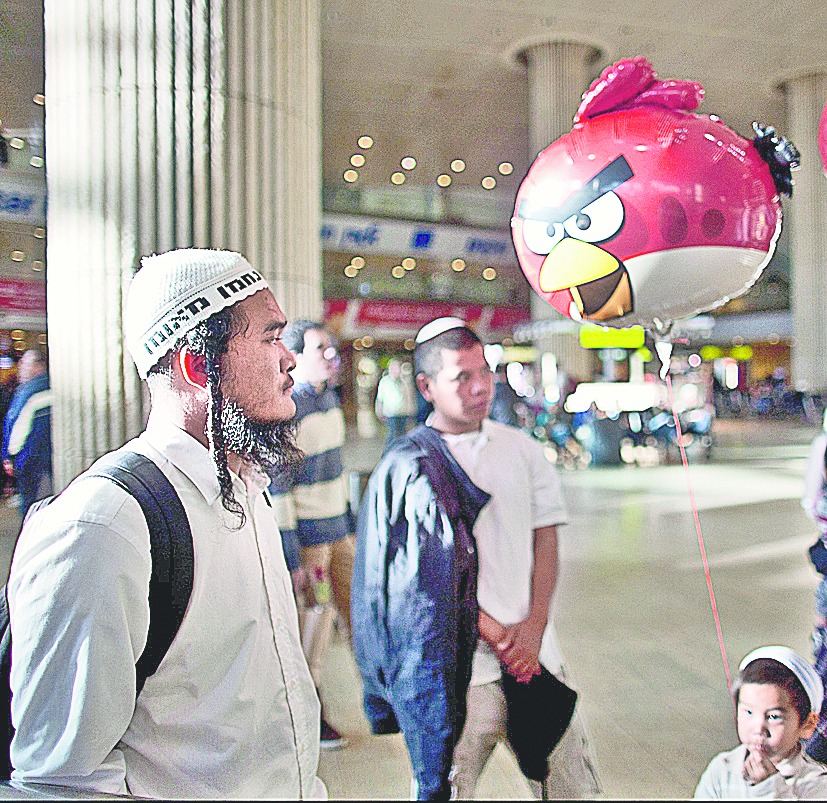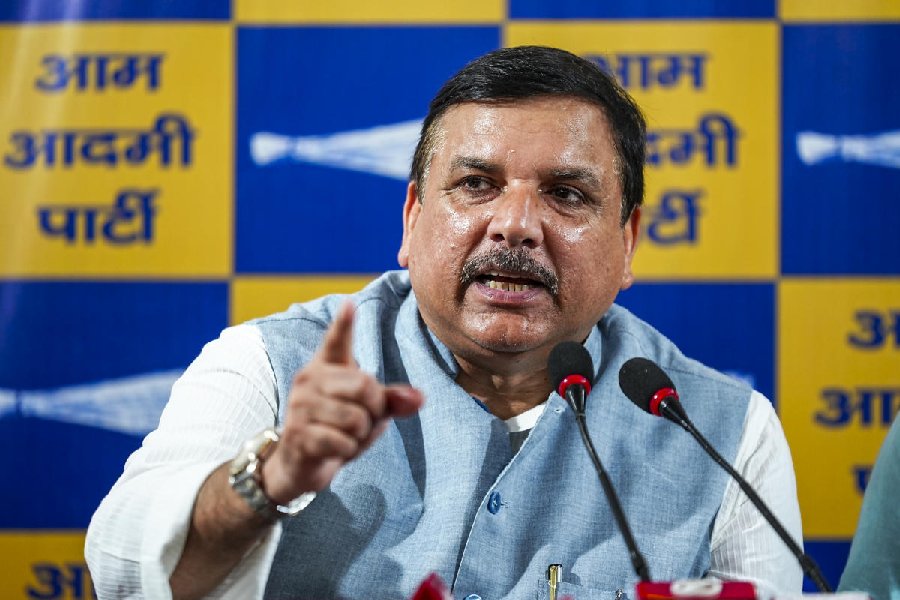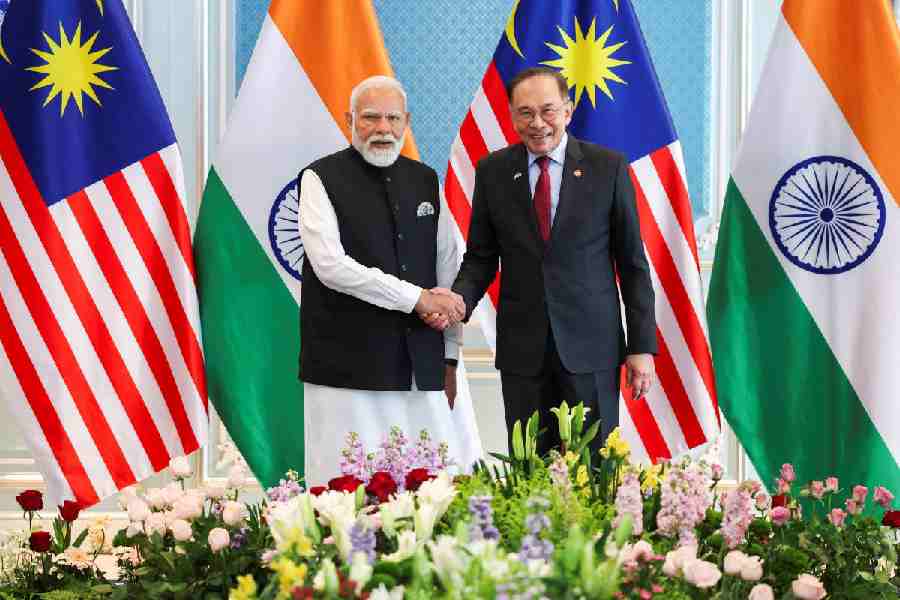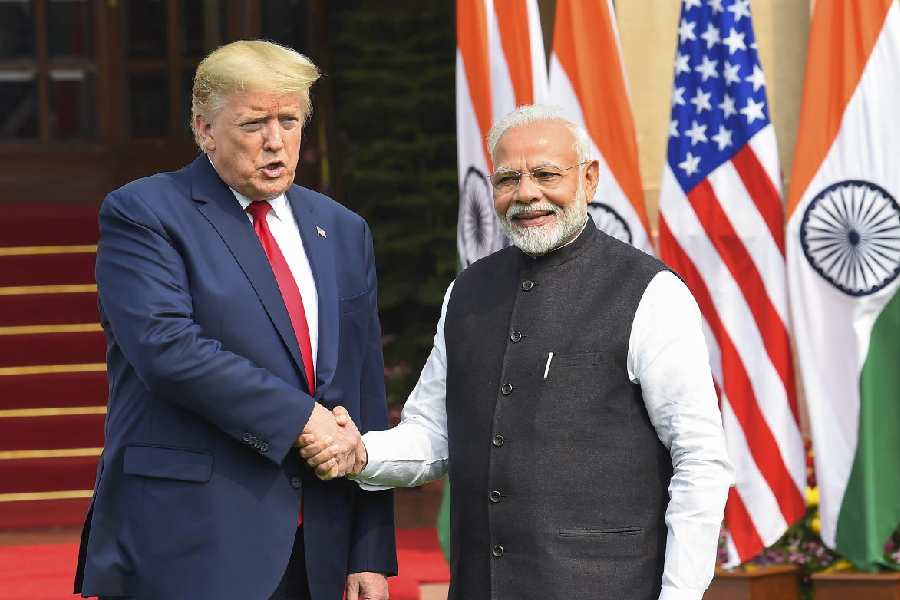
A small group of people from the Zo tribe of northeastern India in Mizoram and Manipur call themselves the Bnei Menashe, or the "children of Menasseh". The Bnei Menashe have waged a heroic, almost century-long struggle to practise Judaism and be recognized as Jews. Their efforts have borne fruit. The chief rabbi of Israel has issued a call to 'rescue' this community and bring it to Israel.
To date, over 2,000 Bnei Menashe have been resettled in Israel after being formally converted to Judaism. They join the 1,00,000 Indian Jews living in Israel, leaving less than 10,000 Jews in India, the majority of whom are now Bnei Menashe. The Bnei Menashe are proud citizens of Israel with deep connections to their brethren still in the Northeast.
The Bnei Menashe claim their 'Israelite' origin from the time when the Assyrians conquered the Northern Kingdom of Israel in the 8th century BCE. They believe their ancestors were banished and forced to flee and their path took them through Afghanistan and the Khyber Pass, on through the Hindu Kush and Tibet to China and Southeast Asia. Finally they found a home in the area that now lies in two Indian states and three countries - Manipur, Mizoram, Bangladesh and Myanmar. According to the former Israeli chief rabbi, Shlomo Amar, there are now 6,000 Jews out of 3,000,000 Zo people spread across this hill terrain. Their embrace of Judaism resulted from the proselytization efforts of Protestant missionaries who have been active in the Manipur, Mizoram and the Chin hills since 1890. Prior to the arrival of the missionaries, the Mizos were shifting cultivators and animists with no written history.
The missionaries provided educational opportunities to the tribal communities of the Northeast, including the Mizos. Today most of the Zo, like other tribes in the Northeast, have fervently embraced Christianity, and many have become missionaries within the region and in South and Southeast Asia and even in Great Britain and Wales.
In the 1920s, the Bnei Menashe asserted their Jewish identity: some religious Zos, who had become Christians and familiarized themselves with the scriptures, believed that their traditional customs were akin to those of the ancient Israelites.
Challianthanga, a Pentecostal deacon from Mizoram, declared that god had revealed the truth to him to restore the religious practices ordained in the Bible and return to the Promised Land. This notion took firm hold by the 1950s, though a split occurred between those who retained their faith in Jesus when they learned that Jews did not recognize his messianic claims, and the Israelite group who sought to follow the Jewish faith.
The late Lalchhanhima Sailo, a leader of the Chhinlung Israel People Convention (1994), sought an independent nation in the Zo territories. The Chhinlung Israel People Convention seeks to reconcile ancient Israelite origins with a strong Christian faith and calls for a second Israeli state in Zo territories that cross the state boundaries of India, Myanmar and Bangladesh.
The Mizo struggle to be recognized as Jews has been arduous and has pitted this very small group of Jewish Zos against their fervent Protestant brethren. There have been several accounts of their being expelled from their villages as they are seen to be disruptive of the Zo community. The Christian Zo fear that the converts to Judaism will 'corrupt' other villagers. Thus the Bnei Menashe have met with violence from their fellow Christians in Manipur, who deem 'conversion' to Judaism a heresy.
Their 'conversion' has also been a point of contention among Indian authorities. In spite of the fact that the Bnei Menashe have actively sought out conversion from Jewish authorities, these conversions are not seen by the Central government of India as distinct from missionary efforts to convert tribal people to Christianity .
The Bnei Menashe Jewish claims have also met with resistance in Israel. This is in spite of the successful efforts of a few individuals from Amishav, and more recently Shavei Israel, an Israel-based Jewish organization that champions the cause of many communities who believe they are part of the Lost Tribes. These organizations reach out to descendants of Jews around the world to strengthen their connection to Israel and the Jewish people. Many Israelis are sceptical of the Jewish claims of the Bnei Menashe that have not been substantiated by DNA tests that can prove their Jewish identities.
There are some who see the attempt of the Bnei Menashe to claim Jewishness as actually an attempt to attain economic advantages for themselves. Whereas the Mizos are economically more successful than other tribal people of the resource rich but under-developed Northeast, the Mizo Jews tend to be poor except for some members in Manipur who are prominent. Claiming a Jewish identity makes it possible for many Zo to emigrate to Israel. Israel also offers many subsidies to Jews who choose to settle in Israel to make the prospect of their aliyah successful.
The Bnei Menashe's efforts to negotiate and reconcile their multiple claims to be Jewish, Zo, Indian and Israeli have been a complex and daunting challenge. They have been marginalized in India and in Israel. In India, the Northeast often feels discounted as part of India. In the Northeast the Zo have been discontented with their political status. As immigrants to Israel, they must overcome many challenges to be integrated there.
Yet the Bnei Menashe have negotiated their multiple identity claims successfully from the margins. There are now centres in Mizoram and Manipur that teach Hebrew and prepare Jews for emigration to Israel. They have opened a community centre in Israel (2005), and many Mizos in Israel are engaged in advancing the knowledge of Judaism among their fellow Jews in Mizoram and Manipur through the translation of Jewish scriptures into local languages.
The role that the Bnei Menashe will play in determining the future of the Jews in India, as well as the ways in which they will contribute to the Jewish aliyah in Israel is a work in progress.











